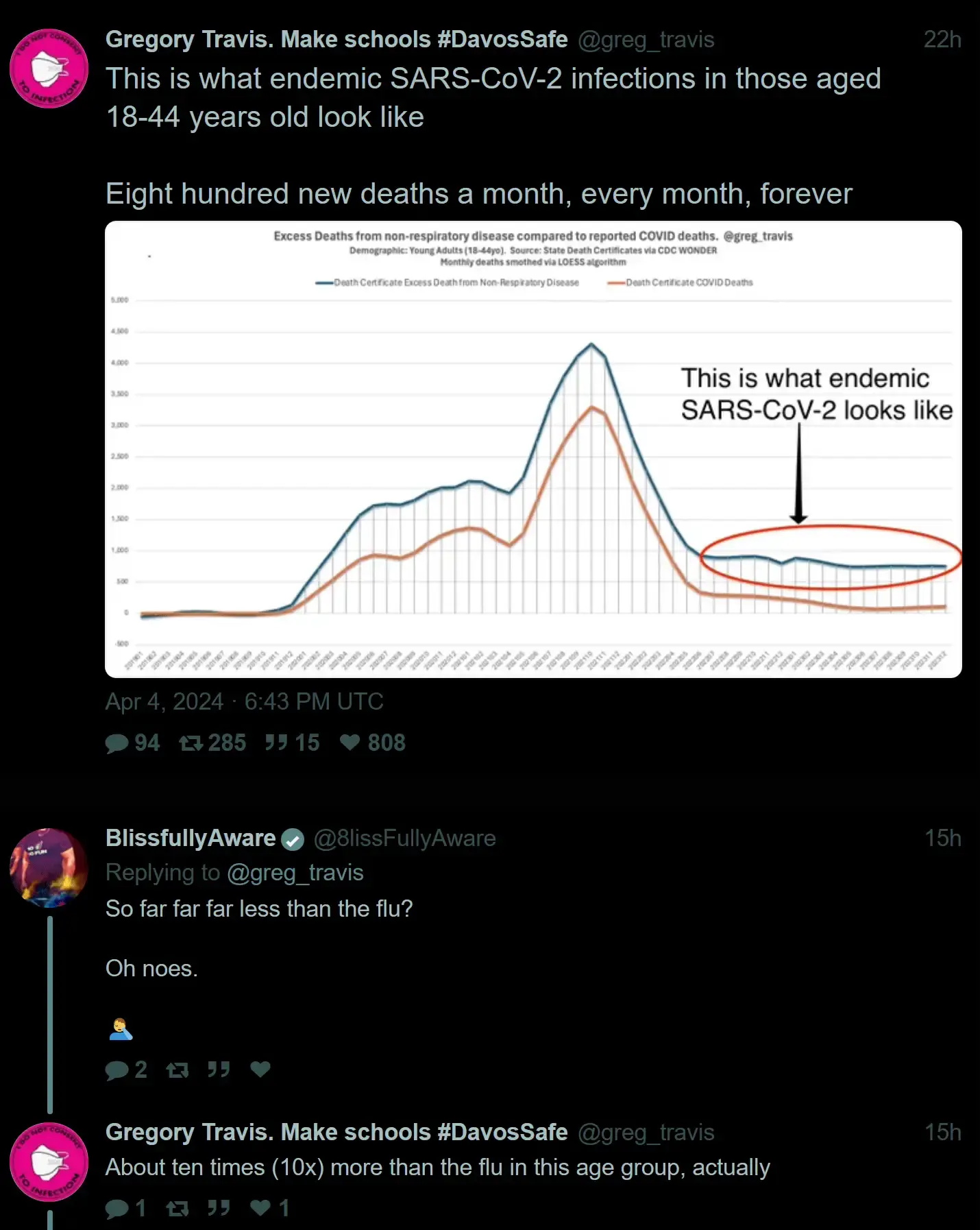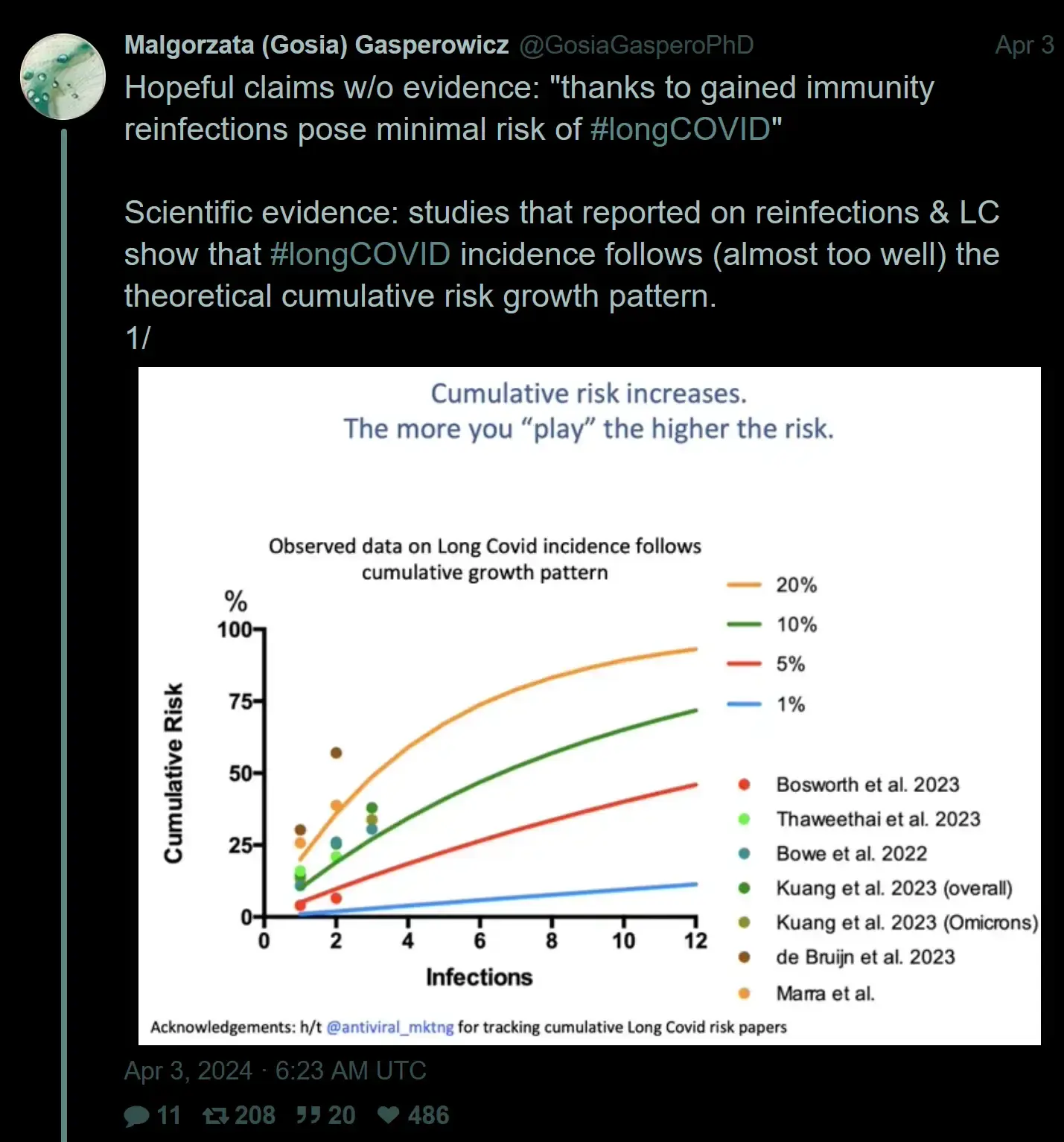Independently, advocates, researchers, and clinicians also reported seeing an increase in the number of people who have developed long COVID after a second or third infection.
John Baratta, MD, who runs the COVID Recovery Clinic at the University of North Carolina, said the increase is related to a higher rate of acute cases in the fall and winter of 2023.
In January, the percentage of North Carolinians reporting ever having had long COVD jumped from 12.5% to 20.2% in January and fell to 16.8% in February.
At the same time, many cases are either undetected or unreported by people who tested positive for COVID-19 at home or are not aware they have had it.
Hannah Davis, a member of the Patient-Led Research Collaborative, also linked the increase in long COVID to the wave of new infections at the end of 2023 and the start of 2024.
"It's absolutely real," she said via email. "There have been many new cases in the past few months, and we see those new folks in our communities as well."
After there was a lull in cases last spring/summer, a lot of covid minimizers claimed long covid isn't a big deal anymore because there were less new cases. Immunity wall or whatever. Turns out cases start increasing again when there is a major covid wave. No one could have forseen...
The best we can say is that some people who get long covid will feel better within a year, and all current data points to covid having cumulative risk. Everytime you get covid, your risk of long term symptoms goes up.




called it in 2020
for once I'd just like to be wrong about this shit